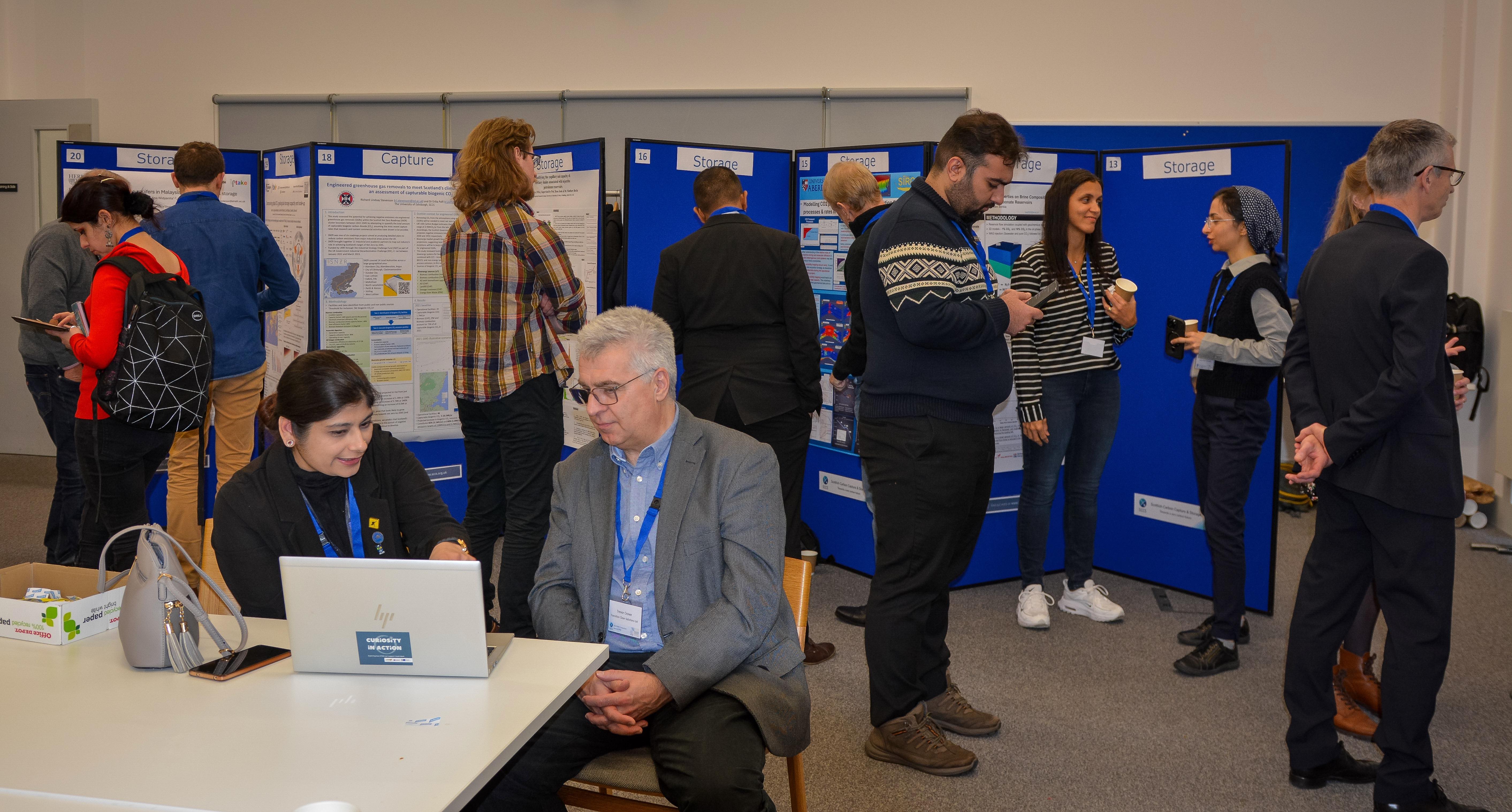The Edinburgh Climate Change Institute played host to the 3rd SCCS PhD Consortium event on 2nd December, as we welcomed over 70 representatives from across industry and academia. Under the remit of CCS, industrial decarbonisation and wider carbon management strategies, this knowledge-sharing event offers Early Career Researchers (ECRs: PhDs and post-docs) from across the SCCS partnership a day dedicated to presenting their cutting-edge research to industry and provides a forum for discussion, feedback and the exploration of collaborative opportunities. Lively discussion and poster sharing began at the onset during delegate registration and there was a keen sense of anticipation for the day ahead.
Demonstrating an impressive depth and breadth of academic talent from across Scotland, ongoing research from all 6 institutions of the SCCS partnership was on show, with 40 poster presentations covering everything from full chain CCS and CCU to mineralisation, thermal energy storage, geothermal, CO2 removal lifecycle analysis, and low-carbon hydrogen production and storage. Click here to see full event details and presentation slides
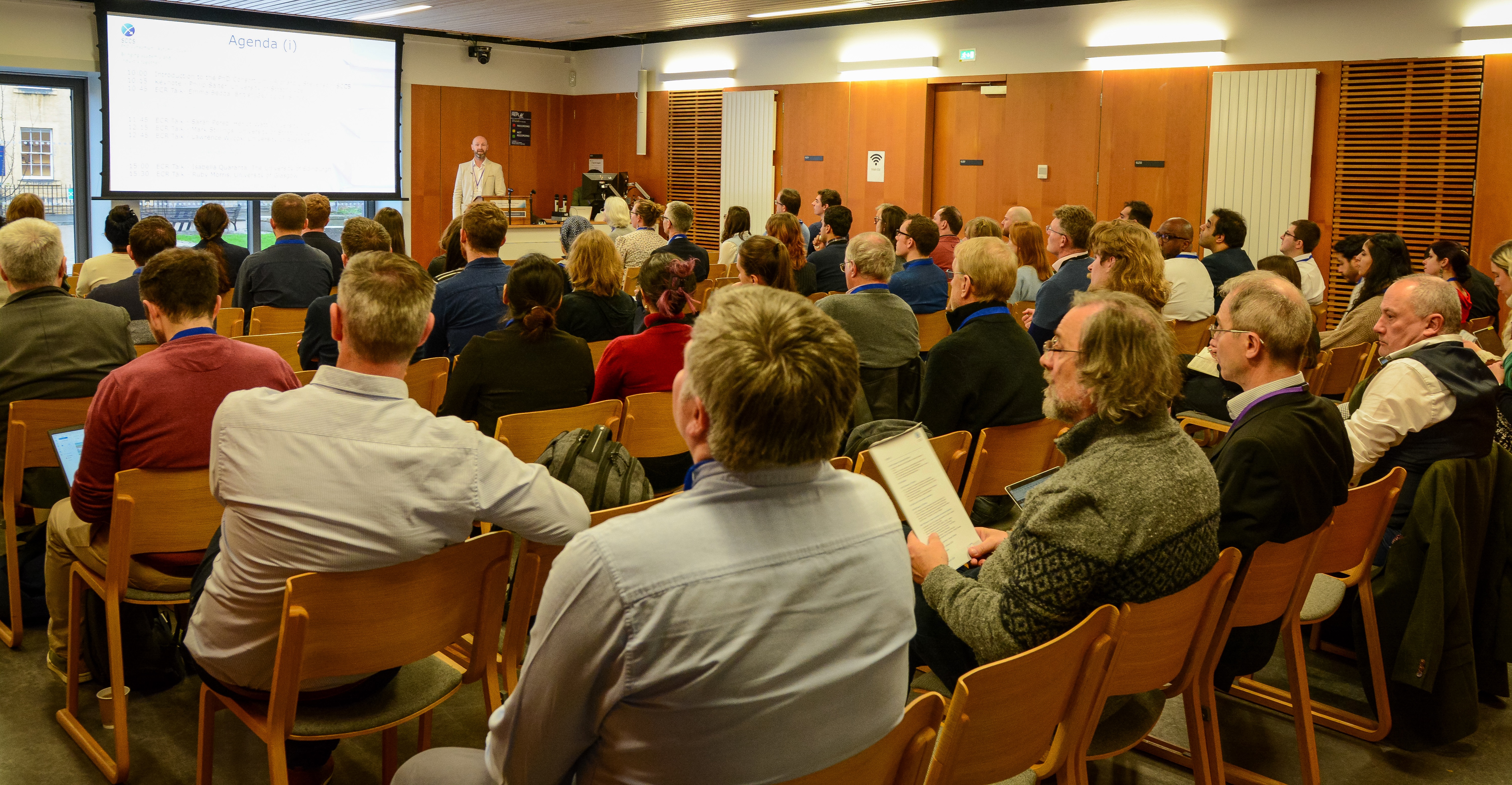
Richard L Stevenson, SCCS Project & Research Analyst, and coordinator of the PhD Consortium initiative, got the day underway with a reminder of the (regrettably, still) urgent need to tackle the climate crisis but also of the opportunity that this event presents as a means of helping shift the decarbonisation dial through genuinely open discussion and collaboration.
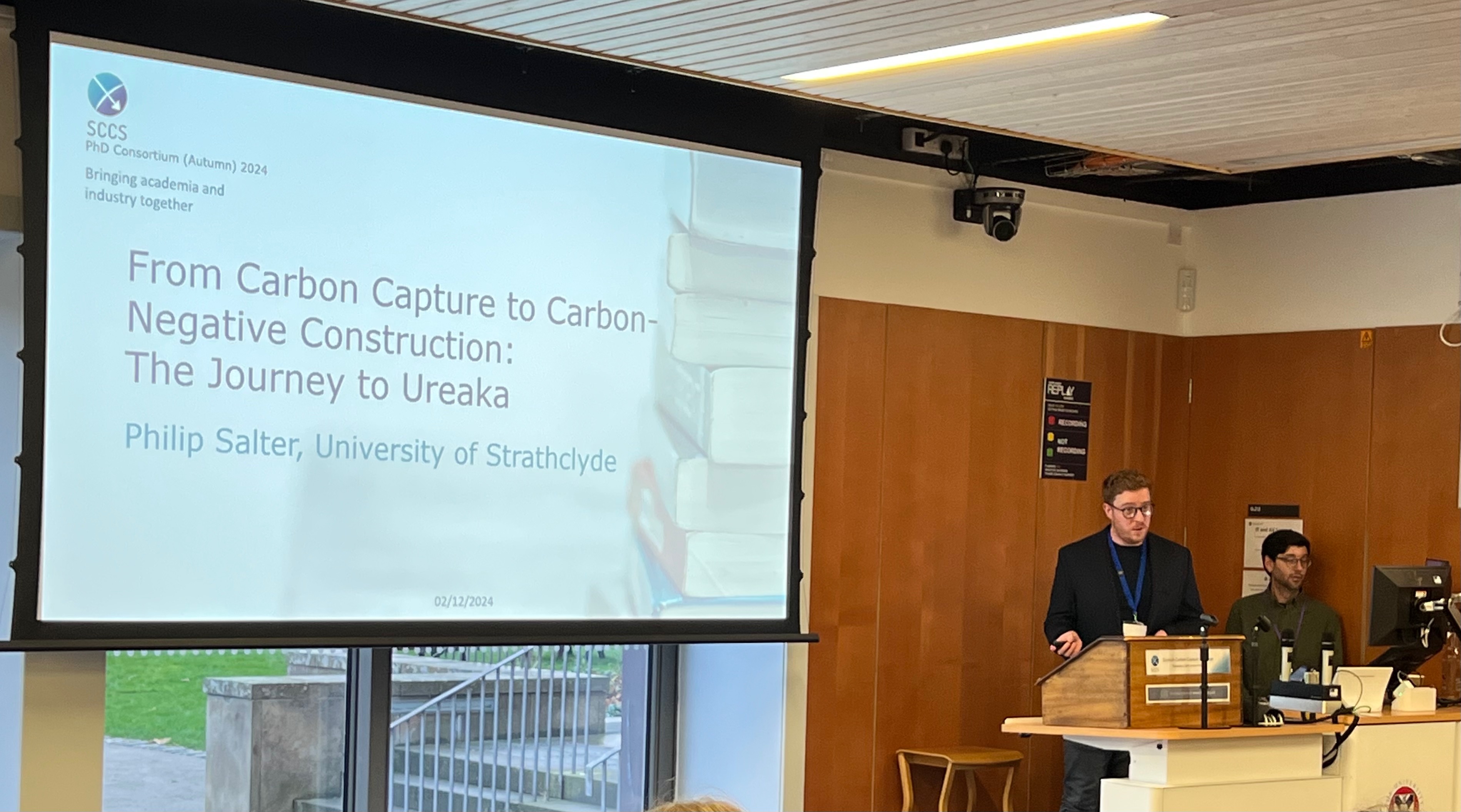
This year’s Industry keynote once again came from one of the SCCS PhD Consortium’s ‘graduates’, Philip Salter from the University of Strathclyde. Having presented at both previous events in 2022 and 2023, and as he nears the end of his PhD, Phil gave a personal account of how SCCS and the PhD Consortium have played a valuable role in his journey from student to start-up. In his talk, From Carbon Capture to Carbon-Negative Construction: The Journey to Ureaka, he highlighted the meaningful academic and industry connections made across multiple SCCS events as he now embarks on a journey towards commercialisation of the product he has developed: a closed-loop, carbon-negative bio-concrete that integrates industry carbon capture and permanent storage in construction materials. Phil has a patent pending and SCCS wishes him all the best.
Industry representatives covered CCS supply chain, engineering & fabrication, gas analysis & processing, power generation, chemicals, hydrogen storage, energy from waste, biochemistry, bioenergy, mineralisation and carbon removals, with numbers this year topping 30 participants - a broad range and significant increase since last year’s meeting, reflective of a growing confidence in developments across CCS and related industries and recognition of the urgent need for talent and skills.
Attendees were then treated to a selection of talks from nominated ECRs from each of SCCS’ partner institutions. Covering CO2 storage, hydrogen storage, AI, green hydrogen, DAC and CCU, the talks built upon the poster exhibit, providing an excellent showcase of the high-quality, cutting-edge research being conducted and alluded to the need for continued efforts. And that same sentiment was echoed by Dr Maxine Akhurst, BGS and SCCS Directorate, whose talk - Quantification of the UK CO2 storage export potential for a carbon capture and storage service - presented an assessment of the UK’s CO2 storage capacity pipeline to deliver CCS as a service to 2050. Maxine flagged the permutations and combinations which could potentially culminate in a mismatch between domestic and European capture rates and UK storage readiness levels.
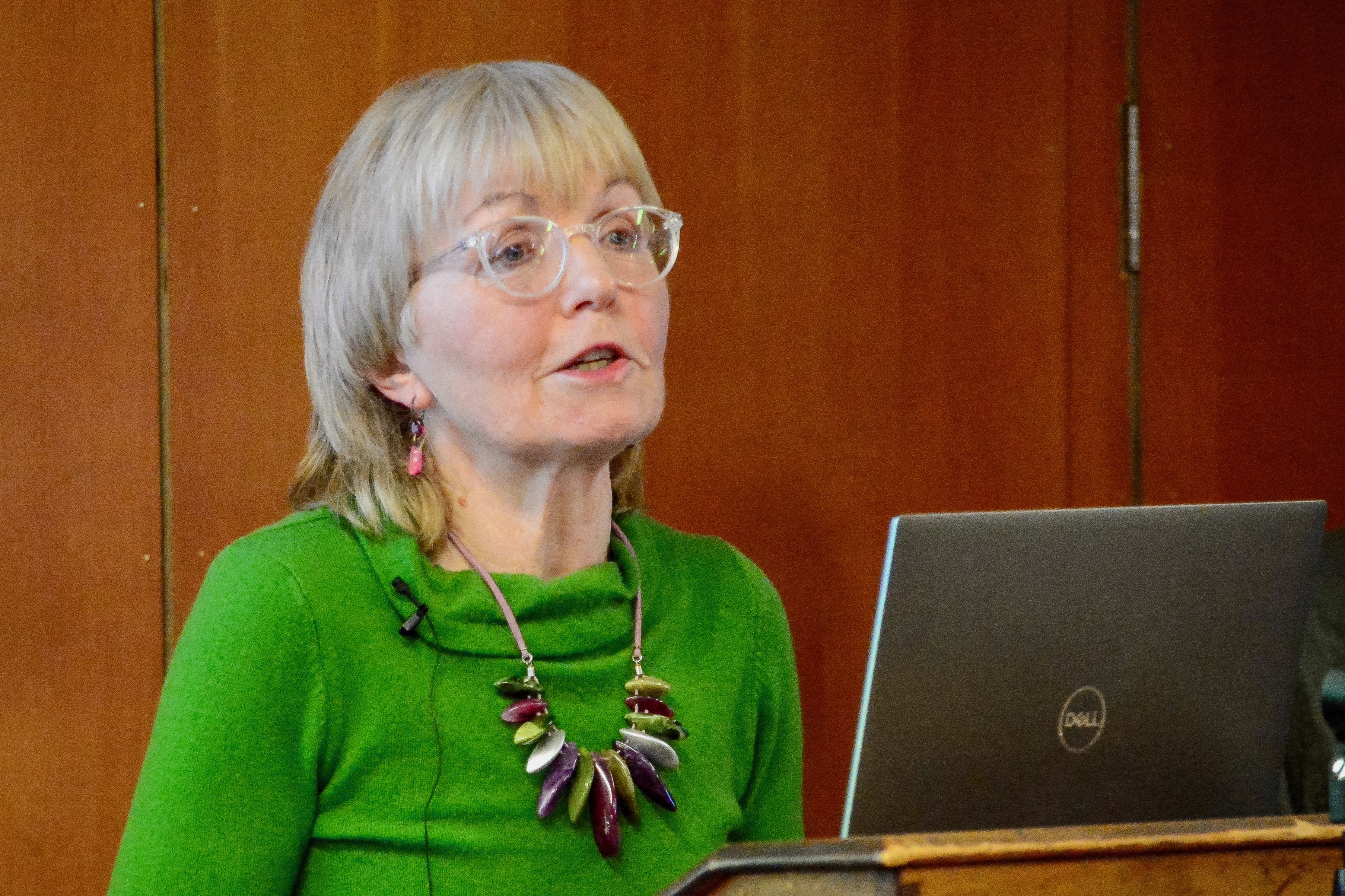
With the aim of projecting a pathway for ECRs at all stages of their careers and for industry to see how they could get involved, speakers from Edinburgh Innovations, Scotland Beyond Net Zero (SBNZ), Scottish Enterprise (SE) and Converge Challenge spoke about impact acceleration and commercialisation opportunities aimed at supporting and empowering entrepreneurial academics and connecting them with companies with real-world problems. Presenting case studies from across Scotland, these covered the UKRI Impact Acceleration Account (IAA) funds, Knowledge Transfer Partnership (KTP) Programme, SBNZ Seed Fund, SE High Growth Spinout Programme (HGSP) and Converge Challenge.
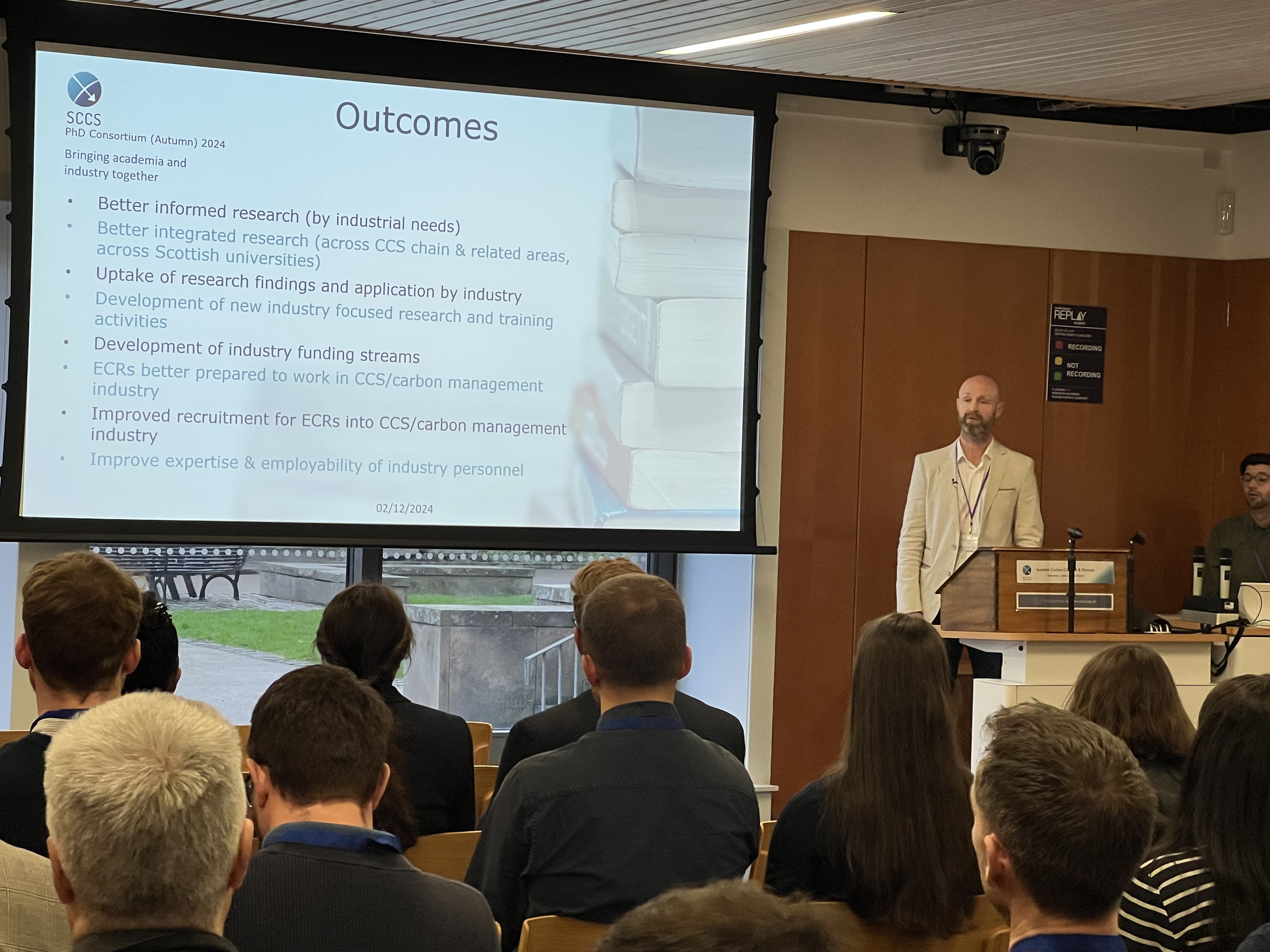
Reflecting on the purpose and value of the event, Richard L Stevenson said: “This event really has once again proved its worth, and in fact seems to get better every year. The sheer breadth and depth of top-tier research presented and showcased is testament to the high-quality outputs for which our partners are renowned. And, with over 30 companies participating this year, the outcomes will undoubtedly be an ECR cohort more informed of the needs of industry and a greater general awareness outside of academia of the exciting and tangible opportunities that all of that offers. All much-needed of course, as our planet continues to call for help.”
Click here to view the photo gallery
Sponsors
Supporters






